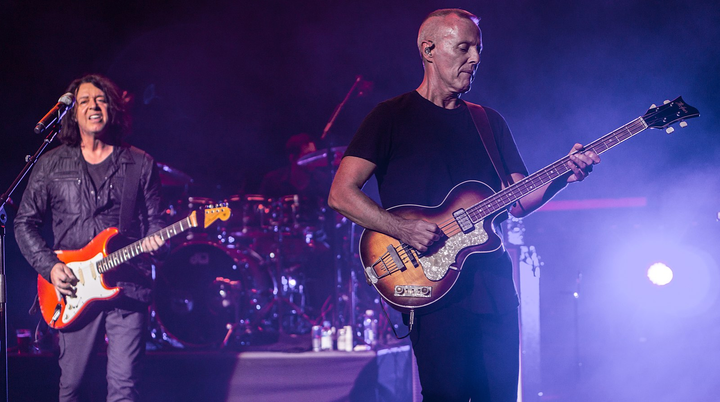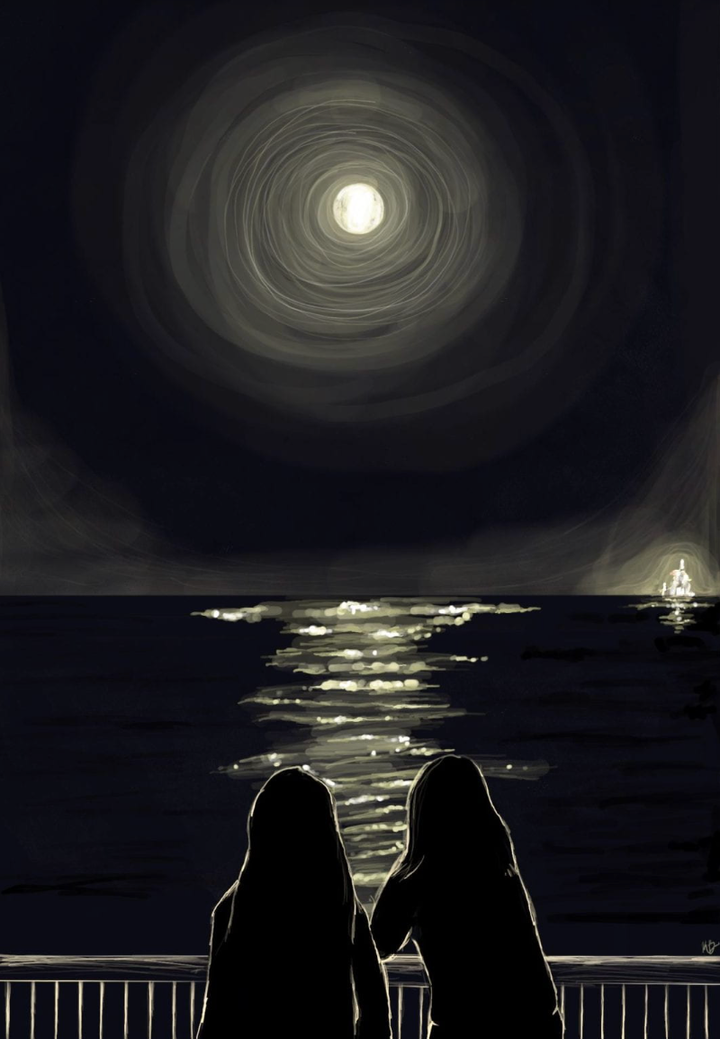"Donda": Daring, Disruptive — Disappointing.
While his album features a compelling new sound, it struggles to maintain its quality. It’s a complicated album, even for a long-time fan like Aryeetey: “It still feels like a grand statement, but one that could be grander.


Last week, Kanye West released his highly anticipated new album, “Donda.” Named after his mother, who passed away in 2007, the album opens with a cryptic chant of the title: “Donda, Donda ... Donda ... Donda Donda Donda…” The track, titled “Donda Chant,” reflects the strengths and shortcomings of the album as a whole. It embraces a new experimental tone but often falters, feeling unfinished.
Still, it’s impossible to tell the story of “Donda” by just listening. Instead, West’s multimedia empire cultivates his oeuvre, contributing to his fame and setting the high expectations for his releases in the hip hop world. I spoke with WAMH Events Director and “The Car Wash” DJ Nii Aryeetey ’23 about the expectations for “Donda” and what they mean for the future of hip hop.
For West, the process of releasing an album is as much of a performance as the music itself. West hinted at “Donda” as long ago as 2019, in a long list of prospective albums that he said he would make but, for the most part, never did. Since then, West has stoked anticipation for “Donda” through a series of teasers, announcements and snippets of music. And weeks before the album was released, West held listening events for the unfinished album, amassing stadiums full of fanatic listeners. He promised to release the album at his first event in Atlanta, and again at a third and final event in Chicago, but ultimately ended up delaying the album’s official release until Aug. 29. An appeal of West’s persona is the mysterious dichotomy between his passionate declarations of absolutes and his fickle changing of plans.
The success of hip hop and pop stars is almost never based on their music alone. West and other stars must develop a marketable personality, one that can sell more products than just albums. Just as Rihanna markets her makeup line “Fenty Beauty,” West is known for his expensive streetwear fashion line, “Yeezy.” These brands aren’t merely successful. They sell out of merchandise immediately.
Hip hop is hopping with competition. West’s contemporaries have not slowed releasing music. Drake dropped “Certified Lover Boy” last week, and younger superstars like Lil Nas X and DaBaby continue to fill the genre with new hit singles. Still, West maintains an influential role in hip hop. Beyond his widely chronicled and outrageous public presence — maybe you know him through his cryptic Twitter posts or his 2020 presidential bid, or his recent divorce from Kim Kardashian — West remains a respected musical talent.
“The albums he has released have influenced hip hop and pop music in general,” said Aryeetey. “He’ll release something that’s unconventional at the time. Then years later, that sound will be the convention.”
Listening to the album, Aryeetey pointed to “Off the Grid,” a track he enjoyed via livestream even before the album’s release. “The beats are strong,” says Aryeetey, before comparing them favorably to their counterparts on West’s last album, “Jesus is King.” He also singled out the long third verse featuring New York-based rapper Fivio Foreign as a highlight of the track. Fivio Foriegn’s verse is lyrically dense, which brings variation to West’s usual style. Aryeetey is also fond of “Hurricane” featuring The Weeknd and “Jonah” featuring Vory. “All the features on the album are intentional by Kanye. He invited all the artists he respects.”
It’s noteworthy that none of the track titles note West’s collaborators, something he first did in 2016’s “The Life of Pablo.” Other iconic rappers like Frank Ocean and Kendrick Lamar have followed suit, also leaving their track titles unaffiliated.
Not all of the tracks were strong, Aryeetey regretfully reported. In particular, he noted “Tell the Vision” featuring Pop Smoke. “It sounds unfinished. It’s clear that it’s not fleshed out.” Aryeetey also made specific mention of “Ok Ok”: “It had the potential to be my favorite. But it didn’t use percussion, and I think it would immensely improve the song.”
Still, the album as a whole develops a more cohesive style than the tracks individually. Aryeetey described that style to me: “A lot of the instrumentation is very sparse. The first two actual songs are called ‘Jail’ and ‘God Breathed.’ ‘Jail’ has no percussion, and ‘God Breathed’ has a lot of percussion, but it’s repetitive. It feels very stripped down. There’s a lot of harmony, but not that many individual instruments playing. It’s a very unconventional thing to do on a mainstream album.” But Aryeetey also pointed out that the experimental tone can come off as a lack of polish, too. “Some of the songs feel empty, and the mixing is a little rough. I don’t think the actual production was finished.”
Another central component of the album is the inclusion of Christian messaging. Since the 2019 release of “Jesus is King,” West has publicly expressed his newfound religious beliefs. Aryeetey elaborated, “[Donda] is a very religious album, clearly. A lot of the songs sound like gospel songs and mention Christianity.” Peculiarly, West seems to have recorded explicit words in the album, only to censor them out in the final release.
Aryeetey discussed “Donda” with a reverent tone. “[Donda] is kind of a rebirth of Kanye. With all the features, he’s bringing all the people around him into it.” Kanye West acts as a fixture of the hip hop world, an uncomfortable figure that influences it by pushing boundaries and challenging norms. But while his album features a compelling new sound, it struggles to maintain its quality. It’s a complicated album, even for a long-time fan like Aryeetey: “It still feels like a grand statement, but one that could be grander. I still don’t know how to feel about it.”





Comments ()